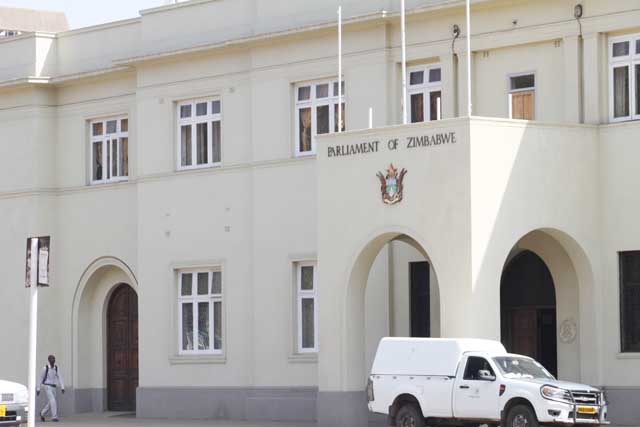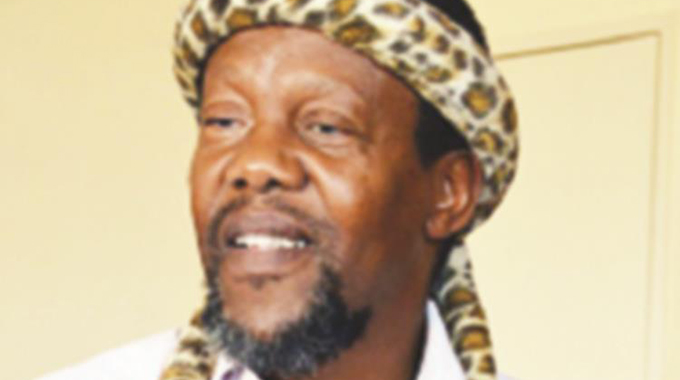50.50 Representation in political spaces (Sponsored Article)

Equal and adequate representation of women in politics is purely a democracy issue, hence the under representation of women in Zimbabwean politics constitutes a devastating democratic deficit. Women are not a minority. They constitute 52% of the country’s population, they are not peripheral to the world that counts.
Section 124 (b) of the Constitution of Zimbabwe provides for the women Quota system of 60 seats in Parliament which are given to each political party based on their tally of votes in the House of Assembly elections for each province:“. . . For the life of the first two Parliaments after the effective date, an additional sixty women members, six from each of the provinces into which Zimbabwe is divided, elected through a system of proportional representation based on the votes cast for candidates representing political parties in a general election for constituency members in the provinces . . .”
This quota system came into effect in 2013 and is set to expire in 2023. It is at this critical stage fundamental questions are raised, one being: Did the quota system serve its intended purpose?
The answer is a glaring NO. The purpose of the quota system was to ensure that women were adequately represented at par with men in politics. However, over the years the women’s movement learnt some painful lessons about the quota system. The Quota system was susceptible to abuse by political parties as there was no systematic way of choosing PR MPs.
In addition to that there was no monitoring process of the system during implementation. Moreover, political parties side-lined women candidates from running for other Parliamentarian seats, restricting them to the PR. In addition, the number of seats reserved for women under the quota system was too low to achieve gender parity and equality.
We cannot begin to talk about constitutional principles of gender equality, gender parity and justice, move to only reserve 60 seats for women out of 210 and then political parties fail to further field women candidates for the other seats. It is a travesty of justice. Put simply, the quota system sold women a dud cheque.
Due to these highlighted factors, women have continued to be under represented despite having the quota system place. The current composition of the Parliament is eloquent testimony of this hard truth. In the National Assembly women constitute (31%), in the Senate (43%) and in Local Government (13.3%).
The SADC Protocol on Gender and Development, Article 12 obligates State parties to adopt legislative measures that enable and ensure that women have equal opportunities with men to participate in electoral processes and decision-making.
The same spirited is also articulated by The Convention on the Elimination of All Forms Of Discrimination Against Women (CEDAW) which obligates State parties to ensure equality before men and women, through ensuring women’s equal access to, and equal opportunities, in political life, including the right to stand for election.
POSITION
It is against this background, we argue that pseudo interventions such as reserving 60 seats for women in Parliament, 0 seats in the presidium and 0 seats in local government will not help in fulfilling the spirit of the Constitution, Regional and International instruments. The interventions do not improve the political life of women in any way.
Our position as the women’s movement therefore is ‘let us fully implement the Constitution.’ Women should simply be accorded their 50% representational seats in politics, parliament and local government.
Zimbabwe does not need to re- invent wheel in order to achieve this. Section 17 of the Constitution is very clear in its provision that there must be gender balance between men and women.
It places an obligation on the State, in peremptory terms, to ensure that women are represented and constitute half membership of all elective and appointed government bodies.
It provides thus “the state must promote full gender balance in Zimbabwean society. The state must promote the full participation of women in all spheres of Zimbabwean society on the basis of equality with men. The State must take all measures including legislative measures needed to ensure that both genders are equally represented in all institutions and agencies of government at every level. It further states that the state should ensure that women constitute at least half the membership of all Commissions and other elective and appointed governmental bodies established by or under the Constitution or any Act of Parliament”
Thus amending the Constitution and extending the women’s quota beyond 2023, only to guarantee women 60 out of 210 seats is a cosmetic approach which will not do much to achieve the spirit of section 17.
The argument is that the Constitution is sacrosanct and should not be amended willy nilly when there are other remedial channels that can be pursued to attain the desired results. It is our position that the Constitution of Zimbabwe has given the nation everything it needs as far as gender equality and gender parity are concerned.
What Zimbabwe has an obstacle to achieving these ideals are a patriarchal dominated legislature, lack of men who are ethical and committed to implementing Constitutional policies faithfully and effectively. It’s a pure governance problem. It is not a problem with the design of section 124 of the Constitution.
RECOMMENDATIONS
In making these recommendations we are guided by the Zimbabwe Gender Policy, which stresses the need to develop legal instruments to ensure 50.50 representation of men and women in politics.
Going forward, the women’s movement is saying do not touch the Constitution to extend the Quota. Simply implement what section 17 and 56 of the Constitution dictates. This can be achieved through:
- Amendment of the Political Parties (Finance Act) to obligate parties to allocate 50% of the resources provided under the Act, to women candidates in order to ensure equitable allocation of resources and fair participation in elections.
- Enacting legislation which regulates political parties on gender balance (Political parties Regulatory Act) providing a mandatory 50% seat reservation for women in local government, National Assembly, Senate and the Presidium
- Whatever piece of legislation that is enacted, it should clearly set out that any decision or action by political parties which does not uphold gender parity and equal representation of women and men, in fielding electoral candidates, shall be null and void at law.










Comments